Choosing Beard Oil That Is Right For You –A Guide
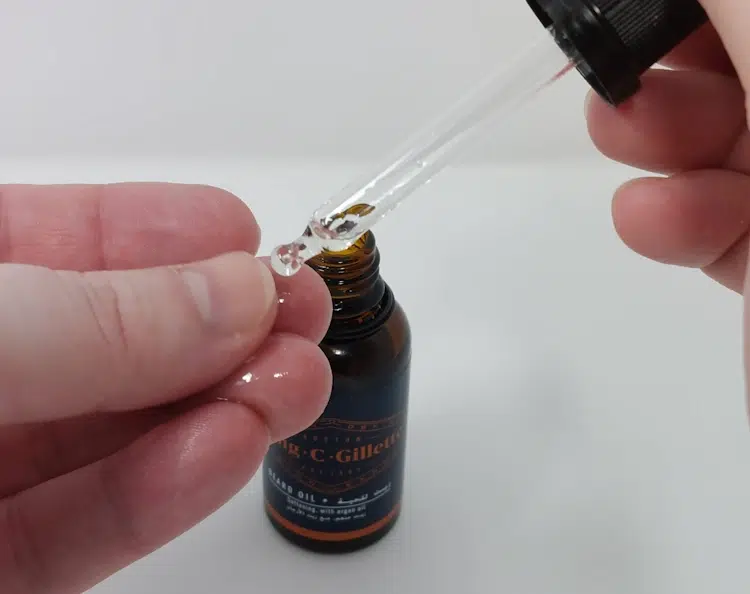
When I talk about my role (product reviewer, writer) here at Shaving Advisor, I often get asked what kind of beard products to use. My friends and family want to know to make sure they don’t get ripped off.
Typically my response is to go to ShavingAdvisor.com. We need that ad revenue after all to keep things churning.
In all seriousness though, there is a great deal of thought that goes into how we judge the products we review. There are plenty of both objective and subjective points that go into our reviews and recommendations.
First in that series is a hard look at beard oils.
Therefore, we are going to put all our thoughts together in one place and give you the low-down on how to find the best beard oil for your face.
What to Look For
Now, I am not going to waste your time here.
If you are googling how to choose the right beard oil, I will dangerously assume you know what beard oil is, and how to use it. I’m also not going to waste your time reviewing the merits of using a beard oil versus a beard balm.
The first thing we need to look at is specifically what you need to look for when you are choosing a beard oil to spend your hard-earned money on.
How’s your Skin?
The first step to any journey is to know oneself.
In less pretentious terms, you need to know what kind of skin you have going into this experiment.
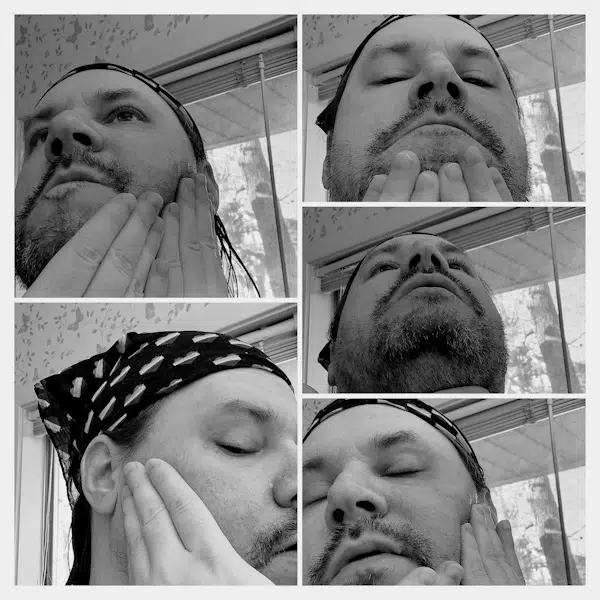
Healthy beards grow from healthy facial skin. That may seem elementary, but you would be surprised how many guys just sort of ignore that aspect of beard health.
Before we begin, we need to ask some questions:
- Is your skin dry or oily?
- Do you have acne issues, or do your pores remain clear no matter what?
- Is your skin sensitive to irritation from strong chemicals or light?]
- Do you have issues with flaky skin under your beard?
- Do you frequently get ingrown hairs?
Each of these questions will have a bearing on the next few points we are going to hit.
Everyone has their own unique skin and body chemistry. If you are aware of any deficiencies or bonuses your skin has, you can find how to make up for anything you lack and get the best bang for your buck.
What’s In it (ingredients)?
Now, we can look at the beard oil itself.
The next step is figuring out what ingredients to look for in the best beard oils.
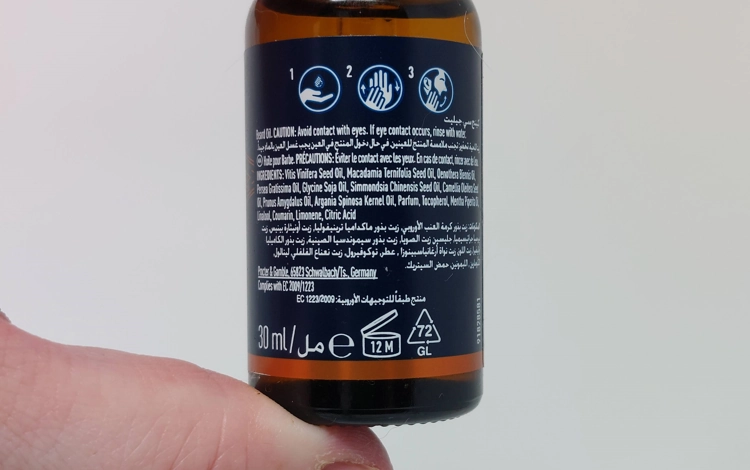
- Jojoba Oil – This is a very popular ingredient in all forms of skincare cosmetics. Some people use this to make their beard oils, or they just use Jojoba oil on their own. Jojoba is great for flaky skin that is way too dry. It also helps to improve hair follicle strength and calm the tension in twisted or curly hair.
- Argan Oil – Second only to Jojoba Oil, Argan oil is found in a great deal of modern beard oils. It can keep your skin looking healthy and moist, as well as repairing damage from acne. For your beard hair, it will tame curly hair and make it soft. It also keeps it safe from the elements like extreme cold and heat.
- Vitamin E – You will find many oils claiming they are fortified with Vitamin E, which is the active part of both Argan Oil and Jojoba Oil. If you miss the other two, but see this, then you should be covered.
- Grapeseed Oil – Also containing Vitamin E, grapeseed oil has medicinal properties that help it to soothe irritated skin. It also adds or restores shine to hair that has been damaged. It’s even used in some shampoos to repair split ends.
- Coconut Oil – Not just good for rum-based drinks! Coconut oil has anti-inflammatory and anti-bacterial properties. What does all this mean? It means you have a perfect acne fighter for skin that is often having breakouts or ingrown hairs.
- Sweet Almond Oil – Sweet Almonds have a great deal of Vitamin E, so it belongs here. In addition to that, it improves blood flow to your hair follicles. This stimulates strong hair growth and can help your beard become more full.
How Do You Get it Out the Bottle?
In my time using and reviewing beard oils, I have discovered three different designs most companies use for getting the oil from the bottle.
Eyedropper
The eye dropper method is one of the most common you will find, especially among the smaller-time or more boutique beard companies. It is probably the best and easiest way to gauge how much you are using at any point. You can control the drops you use. It’s also the most secure to travel with because it is less likely to leak.
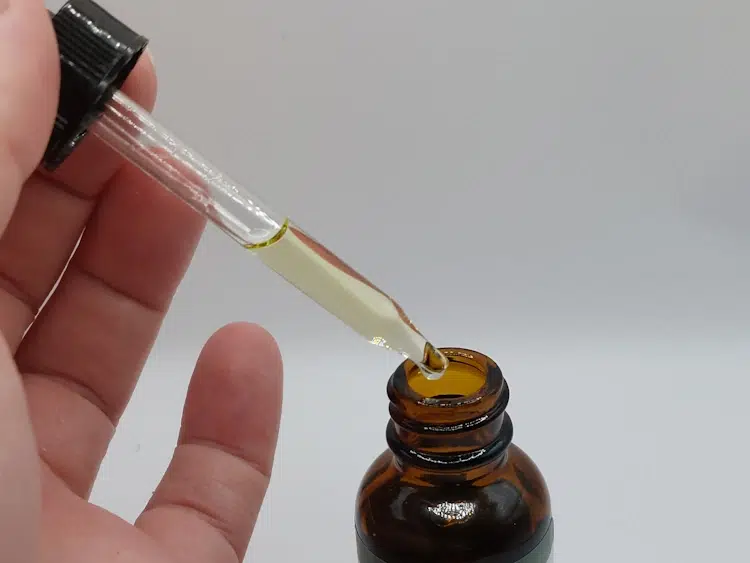
Pump Top
This is a more common applicator for the larger name companies and is my favored option (the pump applicator). It is easy to overdo it with too much oil, but it is so much easier to use than the other options. Just pump it into your hand and go. It could leak if you aren’t careful, but it is so much easier to deal with overall.
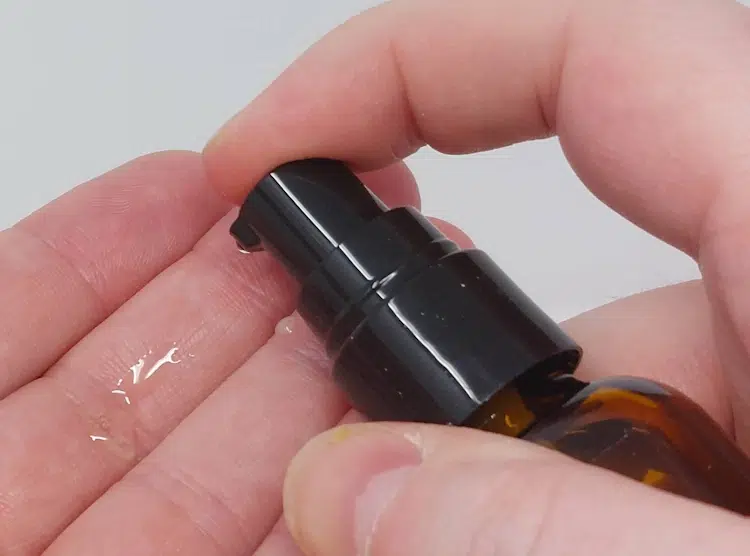
Plastic Cap
The last option here is most definitely the worst, and I’ve only found it once in all the beard oils I have tried (if that tells you anything). It is a plastic cap with a hole in it. Think something like a bottle of Worcestershire sauce. You shake it, and the oil comes out in drops with every shake. It is hard to gauge how much you need, and you end up splattering oil all over the place. Avoid this wherever you can.
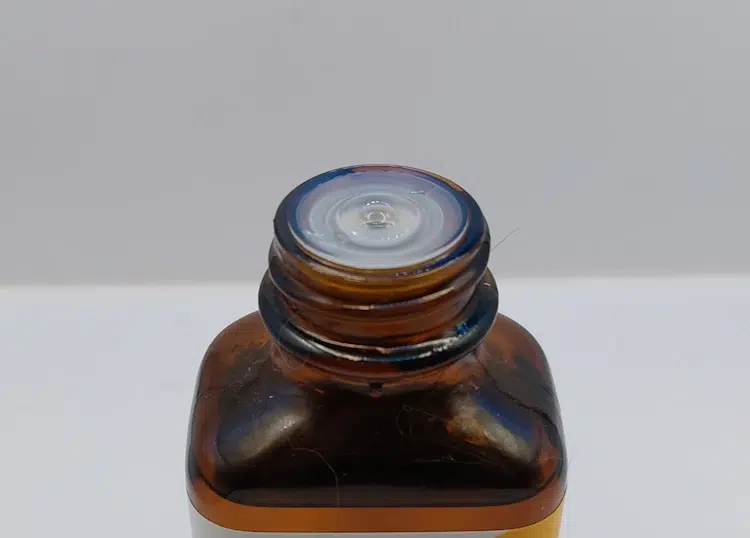
How Does it Feel?
One of the aspects that I feel often gets ignored by people other than me.
Not all oils are created equally, and texture can be a serious turn-on or turn-off. Something thicker or more viscous is going to feel that way on your face. That might seem like a no-brainer, but honestly, I hate the feeling of oil on my face. It comes from having an intense battle with acne every day of my life since puberty.
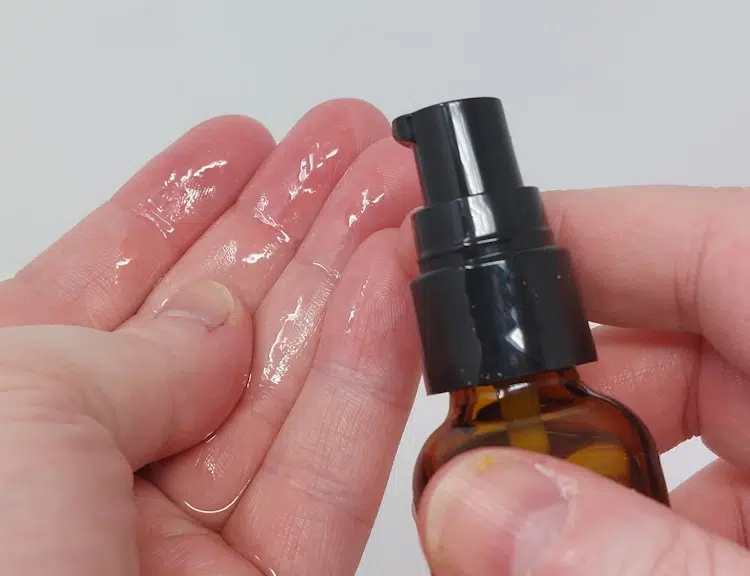
However, thinner oils might need to be applied more often during the day. If you are out in the sun or the wind often, then thinner oils are going to dry quickly and do not offer much protection. However, if you are like me and have a job where you sit inside at a computer, the lighter oils work much better for comfort and health.
What’s it Smell Like?
Another no-brainer on this one.
If you don’t like how something smells, then you are not going to want to put it on your face.
Another consideration is what ingredients are making the scent in the oil. Menthol and peppermint are great for aroma, but they can cause some serious reactions and dry out your skin.
If you have more sensitive skin, some strong scents can irritate the skin. Unscented beard oils are probably going to be your best option.
What’s Your Beard Length?
Your beard length is a major thing to look out for when deciding on beard oil.
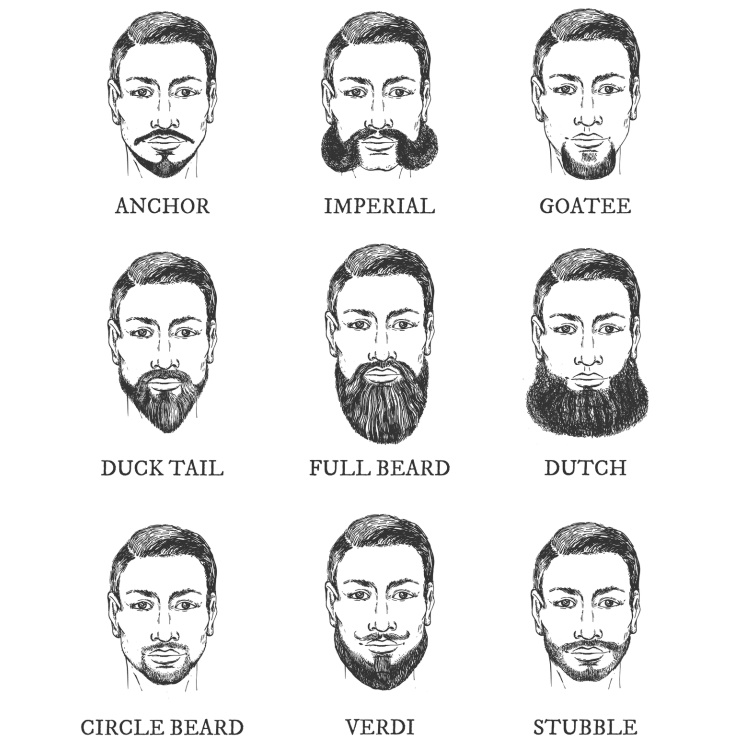
Longer beards are going to need to take more oil to make sure they are thoroughly cared for. That means you are using more oil, and therefore, you are going to need to replace your beard oil more often.
Shorter beards mean you are going to use less oil every time you dress your beard. This also means you are going to deal with your beard drying out quicker, and you will need to reapply it more often.
How much are you willing to Spend?
This is one of the million-dollar questions when it comes to any beard product. Everything costs money and time, and we all know time is money.
It is an unfortunate reality that the beauty and cosmetic industry is full of snake oil salesmen who will overcharge for their products. When looking for a new beard oil, always think about how much money you want to spend.
Honestly, a recommendation from me to you: NEVER EVER pay more than 25 USD for beard oil. Unless you are getting a great deal on something that is going to last you more than 2-3 months, it isn’t worth it.
Most of the best beard oils are going to hover around 10 to 15 USD, with a few going to around 18 USD. Though with how “greed-flation” is right now, that may change between the publishing of this article and when you read it.
Some companies do offer subscription services as well. These are generally good only when you have found a product. Don’t get yourself into a subscription service unless you are genuinely passionate about the product you are getting, even if they are offering what looks like a decent deal at 15-20 percent off.
How to Evaluate a Beard Oil Thoroughly
So you’ve got a beard oil, and you want to put it through the paces to figure out if it is the one for you.
How does one review a good or bad beard oil?
Here are the techniques I use when looking at a beard oil I am reviewing for Shaving Advisor.
Time Used
Typically, I will devote about one to two weeks’ worth of time using a product to see how I feel about it.
I go through everything above, looking at the ingredients, the texture, and the aroma. Then, devote time to using the beard oil.
When it comes to beard care products, you need to give it more than just one day. Unless you have an allergy issue, a scent issue (This stuff smells terrible!), or even a texture issue, then make sure to give it at least several days’ worth of use to find out if you genuinely like it.
Vary the Amount
This is mostly a point to bring up if you are having texture issues.
If you feel that the texture is too heavy, try using less the next time you apply it. Conversely, if things are too thin, then attempt to use slightly more.
It may sound like it is obvious, but you would be surprised of much just varying the amount you use can completely change the feel and use of a single product.
Smaller portions can also affect the aroma profile of the beard oil. As it evaporates or warms up on the skin, then there can be a great slow burn on different parts of the day.
Take Breaks
When it comes to beard products (especially beard oil), you don’t necessarily want to use it every day. If you are trying to decide if you like a product, it is important to use the product and then take a break for a day or two.
When you do, you can feel the difference in how that product affects your skin and your beard hair.
If you think you are having a bad reaction to something, then taking a break to see if it came from the beard oil is your best option.
Also, you can see if it is a possible reaction between more than one product you might be trying out.
Beard care is about multiple parts: beard wash, trimmers, beard oil, and even beard conditioner. They would rarely react in such a way that would hurt you, but one product can affect the feel and action of the essential oils in your beard oil.
You might need to isolate what is causing any specific reaction, and taking a break from your beard oil can help to narrow that down.
Look at Multiple Sources
When looking for the best beard oil for you, 99 percent of every website you go to is going to be attempting to get you to buy something. They want to sell you on ingredients or brands.
We aren’t doing that here. Honestly, I am just trying to arm you with the knowledge so you can make the best decision for yourself. We buy all the products that we review ourselves, and we are not paid by any corporation for good reviews.
Check multiple sources, and grab as much knowledge from multiple places as you can. Almost everyone online is just after your money.
All Together Now
Putting all of this advice together into a systemized look at beard products is almost exactly how I approach my reviews here at Shaving Advisor.
Using all of the above points and taking a critical look at each of these products opened up a whole new world for me, and my beard and face are twenty times more healthy because of it.
I know these points can help you also unlock the best options for your beard, goatee, or mustache. Heck, you can even take these above points and apply them to things like body wash or shampoo to make your whole clean-up routine perfect for you.
